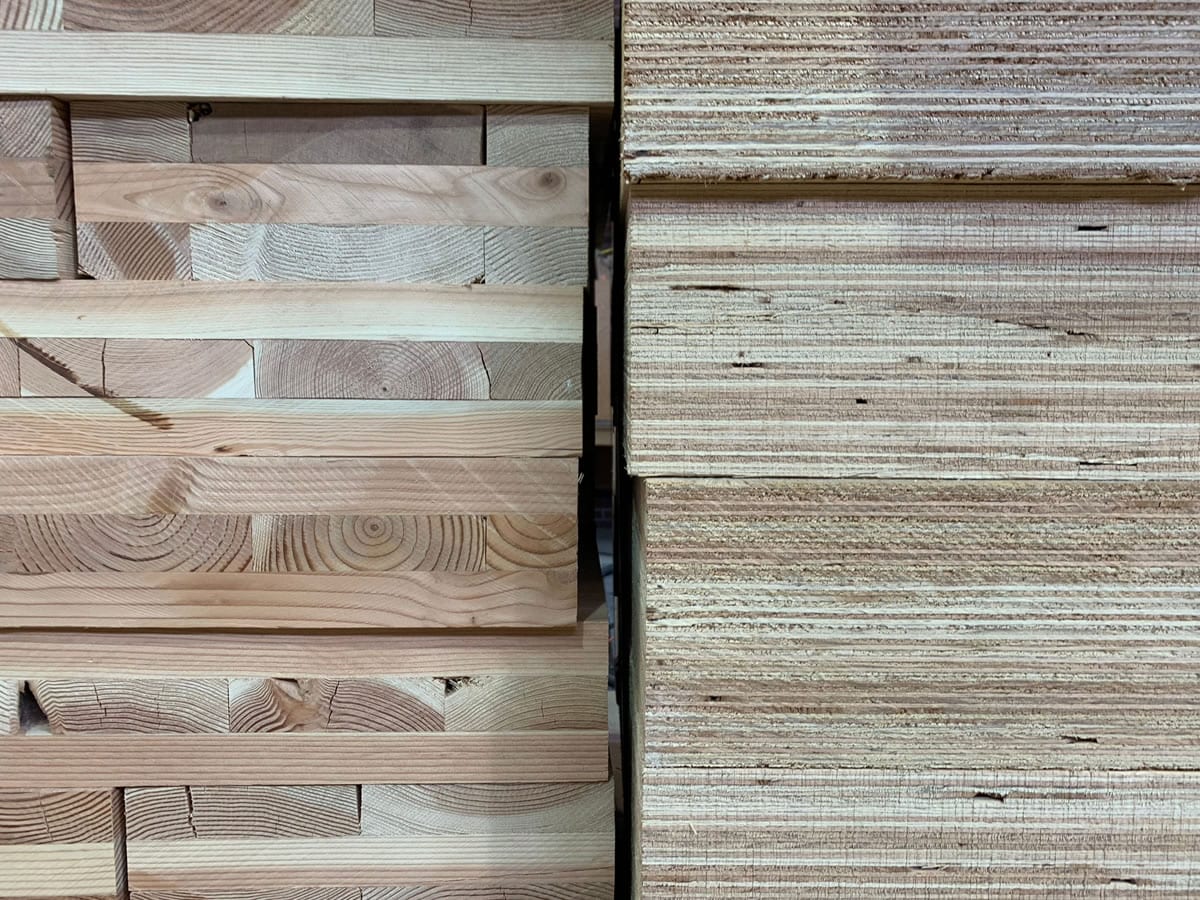Wood vs. Concrete & Steel
The environmental benefits of selecting wood products for your construction project over concrete and steel are substantial. Wood not only requires less energy to produce, but as a result it generates less carbon than other structural materials. In fact, trees are among the most advanced carbon-sequestering vehicles on earth, retaining carbon not only after harvest but through the life of the wood product.
Studies show the volume of wood harvested each year accounts for only 20% of new annual growth. While concrete and steel are finite resources, wood is recyclable, reusable, and reclaimable.
Comparing Mass Ply to Lumber-Based Products
Living up to the reputation of industry leader in sustainable practices, Freres developed a new and innovative class of engineered wood products: Mass Ply.
Assembled by combining extremely thin layers of wood veneers, Mass Ply is a major contributor to the mass timber movement. It is produced primarily from small-diameter trees to mitigate overstocked forests in the Northwest, uses 20-30% less wood than cross-laminated timber (CLT), and is as strong as — or stronger than — other structural composite lumber (SCL) products. As a result, Mass Ply products are forging new ground in mid-to-high rise construction, replacing steel and concrete in buildings up to 18 stories tall.

Cost-Effective
Eco-Conscious
Strong & Versatile
Please see our Life Cycle Assessment and Environmental Product Declaration for a detailed examination of the environmental impacts of Mass Ply products, and learn more about why these assessments are important on our blog.
Mass Ply products are forging new ground in mid-to-high rise construction, replacing steel and concrete in buildings up to 18 stories tall.
Resins
All resins used to produce our engineered products contain formaldehyde, a Volatile Organic Compound (VOC) that occurs naturally in the environment and breaks down quickly. Although some are concerned about health issues related to formaldehyde in building materials, studies have shown that resins in our products do not contribute significantly to formaldehyde emitted naturally from the wood.